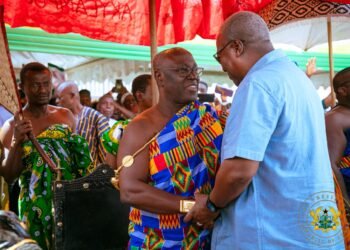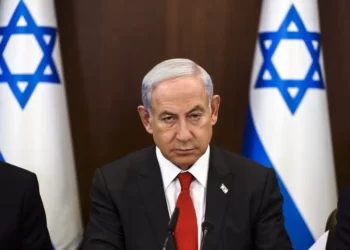The Executive Director of Africa Education Watch (Eduwatch), Kofi Asare, has issued a sharp critique of Ghana’s progress in achieving Free Compulsory Universal Basic Education (FCUBE), stressing that after two decades, the country’s education system still struggles with over one million out-of-school children.
Mr Asare’s comment follows the ruling New Patriotic Party flagbearer, Dr Mahamudu Bawumia’s recent education promises, specifically the pledge to ensure compulsory early years and primary education.
He highlighted a persistent gap in access to education, particularly in underserved communities, and calls for decisive action to address this issue.
“Of the 56 Education Promises, this is the boldest solution i found: ‘Ensure COMPULSORY Early Years and Primary Education….’. After 20 years of Free Compulsory Universal Basic Education (FCUBE), we still have 1 million out-of-school children, primarily due to limited access opportunities and parental irresponsibility in areas where schools exist”.
Kofi Asare, Executive Director of Africa Education Watch
He noted that while the state has made some investments in basic education, the failure to enforce the compulsory aspect of education—particularly in communities where schools are accessible—has been a significant oversight.
According to him, his education think-tank group has long advocated for the enforcement of compulsory education laws, particularly in regions where access to public primary schools is reasonable.
Mr Asare emphasized that waiting for the state to build schools in every community before holding parents accountable for their children’s education is not a viable strategy.
“We have never attempted enforcing the ‘C’ in law; at least in communities where reasonable access opportunities exist”, Mr Asare stressed, reinforcing the organization’s position that without enforcing the compulsory aspect of basic education, the goal of “Education For All” will remain out of reach.
Parental Compliance with Compulsory Education
Furthermore, Kofi Asare, the Executive Director of Africa Education Watch acknowledged the importance of state investment in basic education infrastructure but argued that infrastructure alone is not enough.
He called for Metropolitan, Municipal, and District Assemblies (MMDAs) to take an active role in overseeing parental compliance with compulsory education laws in areas where public schools are available.
While Mr Asare lauded the government’s promise as a “great promise that can be measured,” he pointed out that it would have been more impactful if the policy promise was accompanied by a specific commitment to building new primary schools and kindergartens (KGs) in underserved communities.
He noted that instead, the promise merely mentions plans to renovate existing KGs and primary schools.
Among several other initiatives, the Vice President and the New Patriotic Party flagbearer, Dr Mahamudu Bawumia pledged to introduce a Free Tertiary Education Scholarship for PWDs, to remove financial barriers to pursuing educational goals.
He also promised to implement in full the Centralised Applications Processing Service (CAPS) for tertiary institutions: “You apply once, and pay once”.

Others include the expansion of the eligibility for the Student Loan Scheme to include all post-secondary students, including certificate and diploma programmes, and prioritise and direct a significant proportion of national scholarship schemes towards training and skills development in STEM
As Ghana continues to grapple with educational access issues, the Executive Director of Africa Education Watch,
Kofi Asare’s call for stronger enforcement of compulsory education laws underscores the urgent need for a more strategic and accountable approach to fulfilling the country’s educational promises.
His critique serves as a reminder that without concrete actions and measurable targets, the dream of universal basic education will remain an elusive goal for many Ghanaian children.
READ ALSO: MTN Ghana Drops 1.32% as GSE Composite Index Slips




















